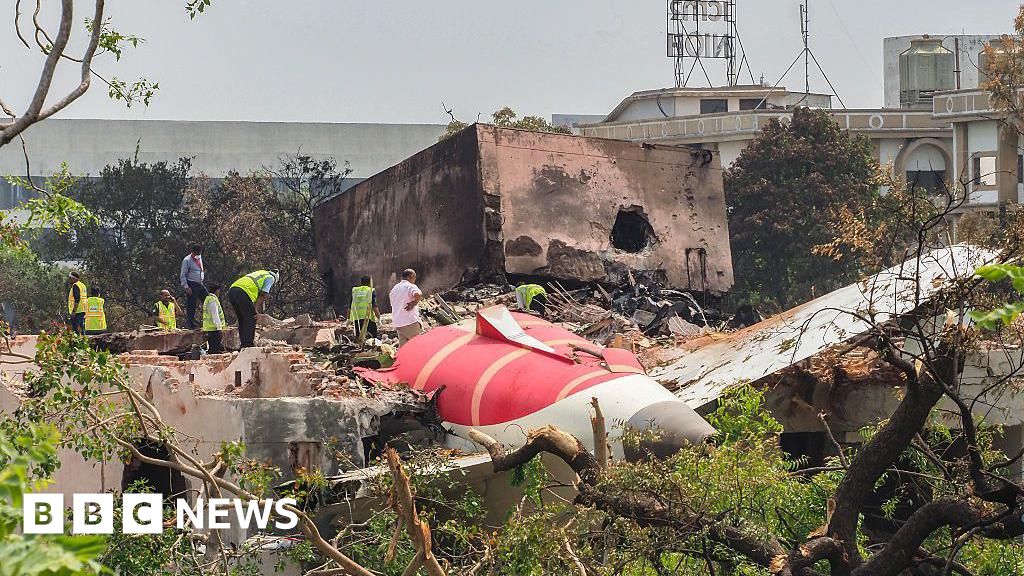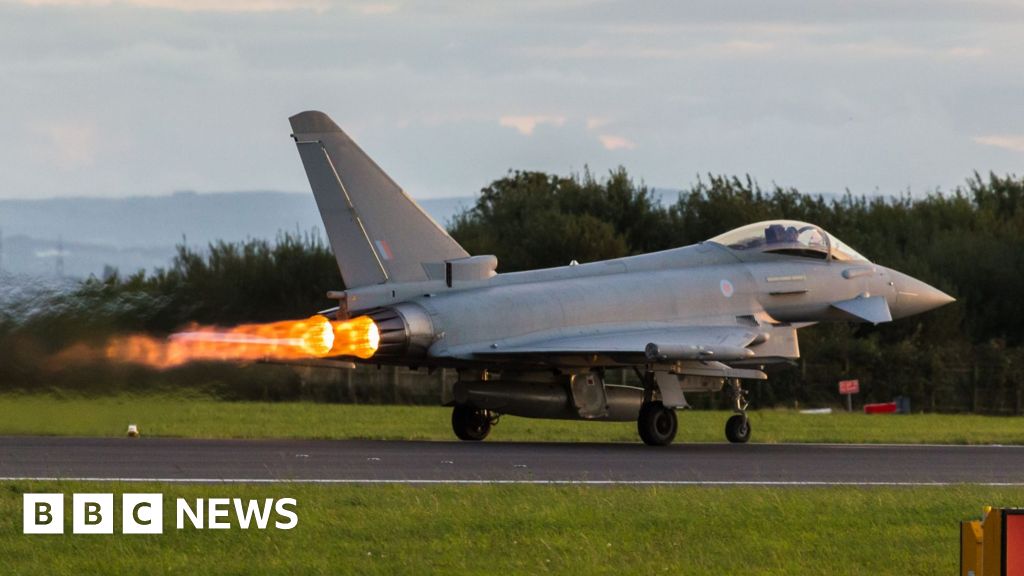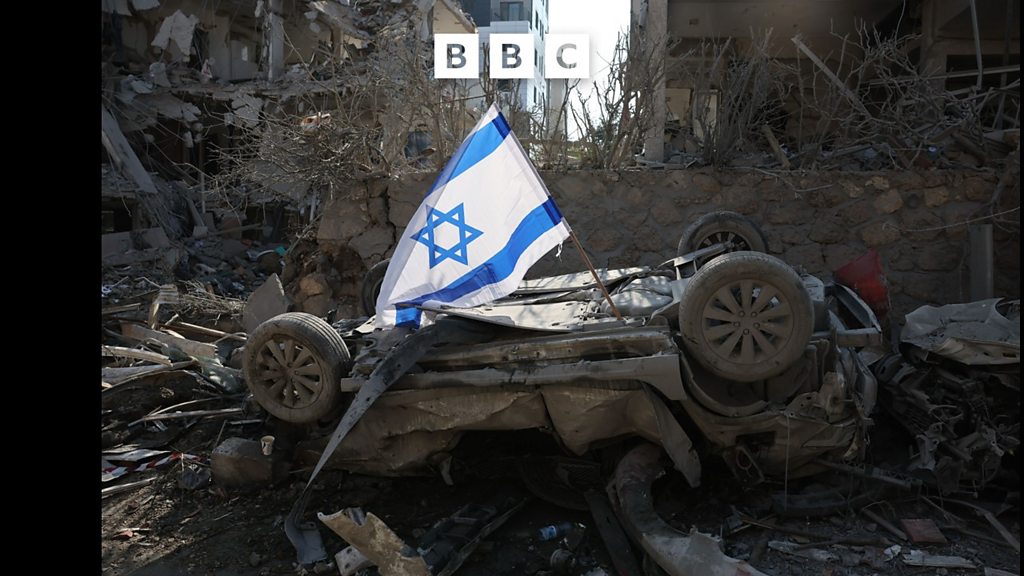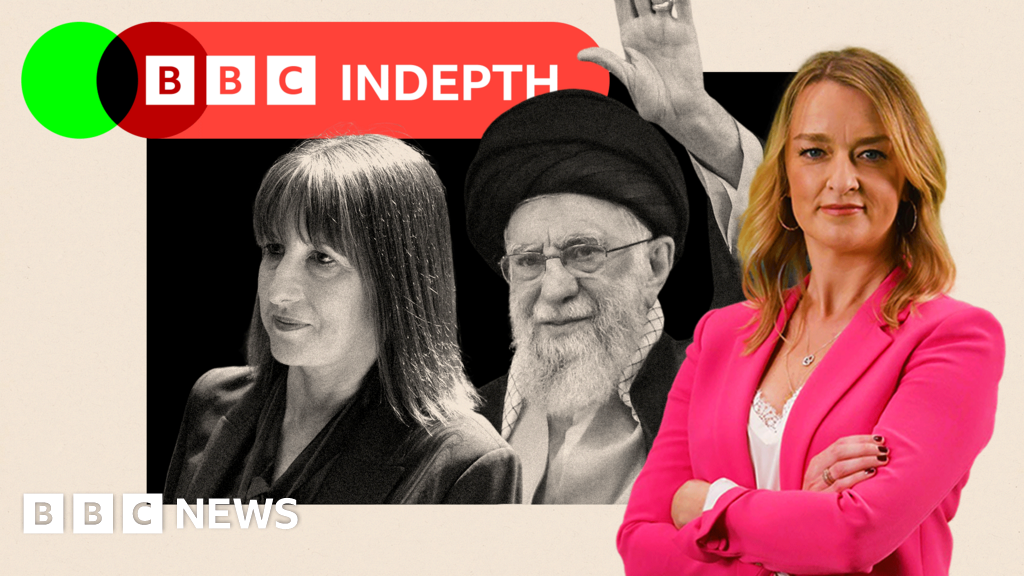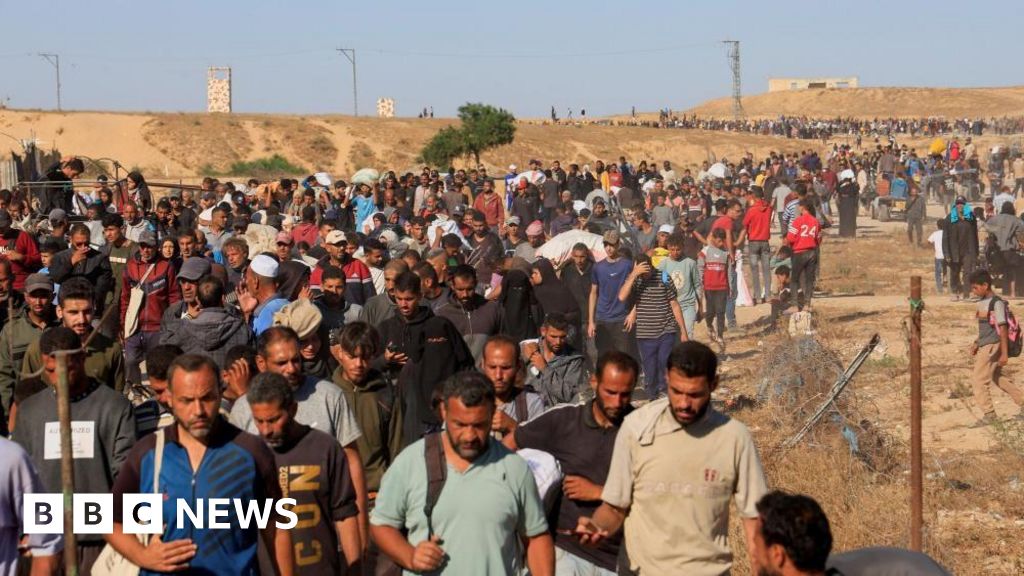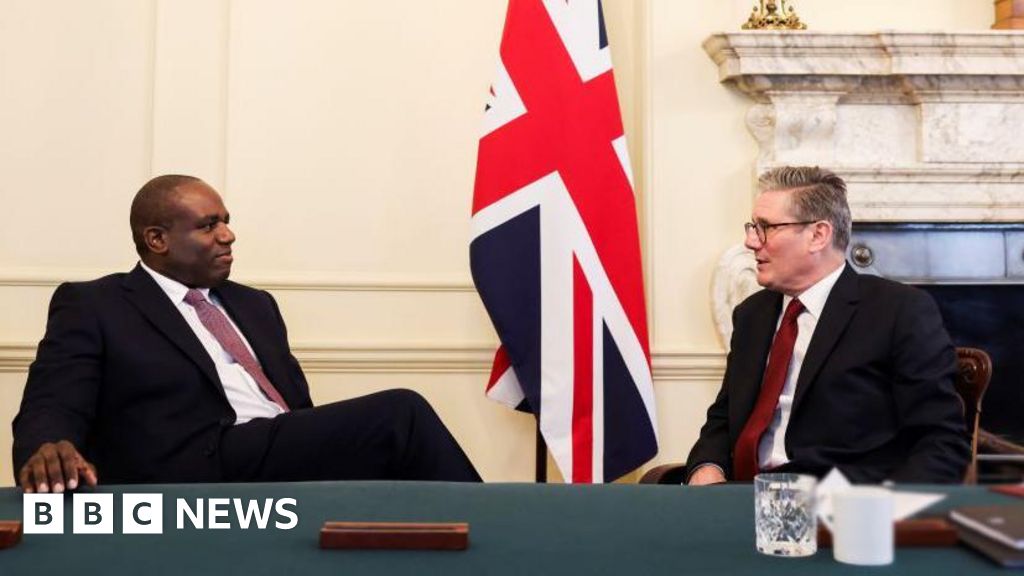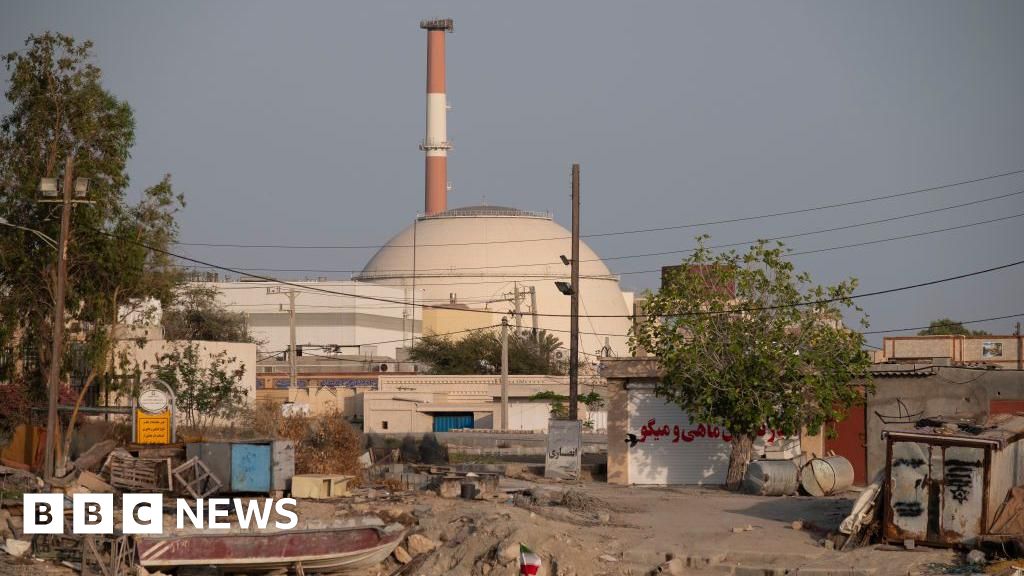
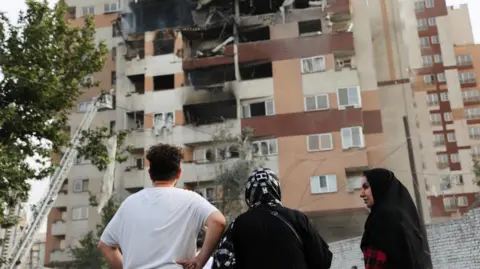 Reuters
Reuters
Friday night saw Israel and Iran exchange a barrage of air strikes
For now the fighting between Israel and Iran seems restricted to the two nations. At the United Nations and elsewhere there have been widespread calls for restraint.
But what if they fall on deaf ears? What if the fighting escalates and expands?
Here are just a few possible, worst-case scenarios.
America gets dragged in
For all the US denials, Iran clearly believes American forces endorsed and at least tacitly supported Israel's attacks.
Iran could strike US targets across the Middle East – such as special forces camps in Iraq, military bases in the Gulf, and diplomatic missions in the region. Iran's proxy forces - Hamas and Hezbollah – may be much diminished but its supportive militias in Iraq remain armed and intact.
The US feared such attacks were a possibility and withdrew some personnel. In its public messaging, the US has warned Iran firmly of the consequences of any attack on American targets.
What might happen if an American citizen were killed, say, in Tel Aviv or elsewhere?
Donald Trump might find himself forced to act. Israel's Prime Minister Benjamin Netanyahu has long been accused of wanting to drag the US into helping him defeat Iran.
Military analysts say only the US has the bombers and bunker-busting bombs that can penetrate the deepest of Iranian nuclear facilities, especially that of Fordow.
Trump promised his MAGA constituency he would not start any so-called "forever wars" in the Middle East. But equally many Republicans support both Israel's government and its view that now is the time to seek regime change in Tehran.
But if America were to become an active combatant, that would represent a huge escalation with a long, potentially devastating consequential tail.
Gulf nations get dragged in
If Iran failed to damage Israel's well-protected military and other targets, then it could always aim its missiles at softer targets in the Gulf, especially countries that Iran believes aided and abetted its enemies over the years.
There are lots of energy and infrastructure targets in the region. Remember Iran was accused of striking Saudi Arabia's oil fields in 2019 and its Houthi proxies hit targets in the UAE in 2022.
Since then there has been a reconciliation of sorts between Iran and some countries in the region.
But these countries play host to US airbases. Some also – discreetly – helped defend Israel from Iranian missile attack last year.
If the Gulf were attacked, then it too might demand American warplanes come to its defence as well as Israel's.

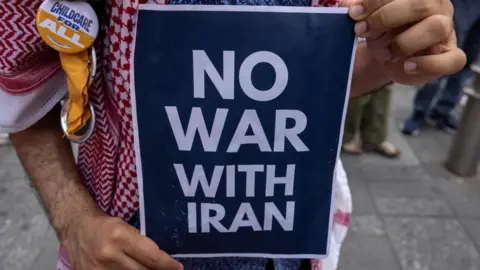 Reuters
Reuters
A demonstrator holds a sign during a protest against Israeli strikes on Iran in New York
Israel fails to destroy Iran's nuclear capability
What if the Israeli attack fails? What if Iran's nuclear facilities are too deep, too well protected? What if its 400kg of 60% enriched uranium – the nuclear fuel that is just a small step away from being fully weapons-grade, enough for ten bombs or so – is not destroyed?
It's thought it may be hidden deep in secret mines. Israel may have killed some nuclear scientists but no bombs can destroy Iran's knowhow and expertise.
What if Israel's attack convinces Iran's leadership that its only way of deterring further attacks is to race for nuclear capability as fast as it can?
What if those new military leaders round the table are more headstrong and less cautious than their dead predecessors?
At the very least, this could force Israel to further attacks, potentially binding the region into a continual round of strike and counter-strike. Israelis have a brutal phrase for this strategy; they call it "mowing the grass".
There's a global economic shock
The price of oil is already soaring.
What if Iran tried to close the Strait of Hormuz, further restricting the movement of oil?
What if – on the other side of the Arabian Peninsula - the Houthis in Yemen redouble their efforts to attack shipping in the Red Sea? They are Iran's last remaining so-called proxy ally with a track record of unpredictability and high risk appetite.
Many countries around the world are already suffering a cost of living crisis. A rising price of oil would add to inflation on a global economic system already creaking under the weight of Trump's tariff war.
And let's not forget, the one man who benefits from rising oil prices is President Putin of Russia who would suddenly see billions more dollars flood into Kremlin coffers to pay for his war against Ukraine.
Iran's regime falls, leaving a vacuum
What if Israel succeeded in its long term aim of forcing the collapse of the Islamic revolutionary regime in Iran?
Netanyahu claims his primary aim is to destroy Iran's nuclear capability. But he made clear in his statement yesterday that his broader aim involves regime change.
He told "the proud people of Iran" that his attack was "clearing the path for you to achieve your freedom" from what he called their "evil and oppressive regime".
Bringing down Iran's government might appeal to some in the region, especially some Israelis. But what vacuum might it leave? What unforeseen consequences would there be? What would civil conflict in Iran look like?
Many can remember what happened to both Iraq and Libya when strong centralised government was removed.
So, much depends on how this war progresses in coming days.
How - and how hard - will Iran retaliate? And what restraint – if any - can the US exert on Israel?
On the answer to those two questions much will depend.
.png)
 16 hours ago
4
16 hours ago
4
